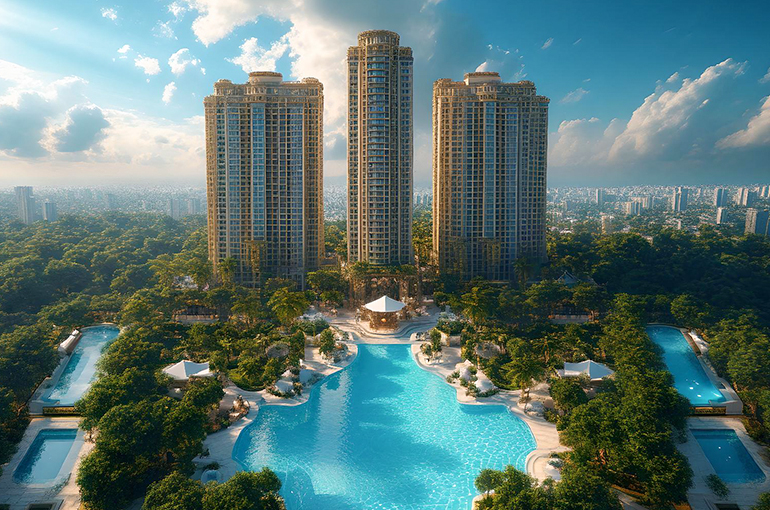 Luxury Hotels Lose Their Luster in China as Buyers Hold Off Amid Economic Slowdown
Luxury Hotels Lose Their Luster in China as Buyers Hold Off Amid Economic Slowdown(Yicai) April 14 -- Luxury hotels in China, once prized assets, are struggling to attract buyers as economic growth slows. Their steep price tags and high running costs mean than many stay on the market for a long time and those that do sell, often do so at a heavily discounted price.
The five-star Tianlai Hotel in Nanchong, southwestern Sichuan province, for example, finally found a buyer on April 10 after 10 previous unsuccessful attempts at a quarter of the original asking price of CNY908 million (USD124.4 million).
The hotel, which used to be one of the most well-known hotels in Nanchong and a city landmark, was put up for sale last year because the original owner went bankrupt, according to information provided by Ali Auction.
Failed auctions of high-end hotels have become increasingly common since the second half of last year. “In the third quarter of 2024, more than 40 luxury hotels were placed on auction, but only three changed hands,” Han Quanzheng, president of real estate think tank Innhome Research Institute, told Yicai.
Only nine out of 163 hotels that were foreclosed in the third quarter of last year and put up for auction actually sold, marking a success rate of just 5 percent, according to incomplete statistics from Mildin. Of these, 52 had a starting price of more than CNY100 million (USD13.7 million).
Luxury hotels with a four-or-five-star rating are expensive to acquire, even after the price has been slashed significantly, and there are not many buyers with the available means, Han said. They are also not easy to run. Even in prime downtown locations, the return on investment is usually only between 6 percent and 9 percent, and if they are located in the suburbs, this drops to around 4 percent.
Another issue is that the owners of a lot of the hotels for sale are heavily in debt, which deters investors. “For example, although a hotel might be listed for sale at 30 percent of the original price, potential investors have to tread carefully because of unresolved debt disputes both at home and abroad,” Han said.
More luxury hotels are likely to go on sale in the future, but many of them will remain on the market for some time, Han said.
However, despite the sluggish sales of high-end hotels, China’s hotel industry is performing well. Last year, 17,300 new hotels, each with at least 15 rooms, opened in the country’s fourth-tier and smaller cities, according to the latest hotel investment white paper released by Innhome. Of these, 12,500 were zero to two-star economy hotels, showing that there is still strong demand for basic accommodation.
Editors: Tang Shihua, Kim Taylor